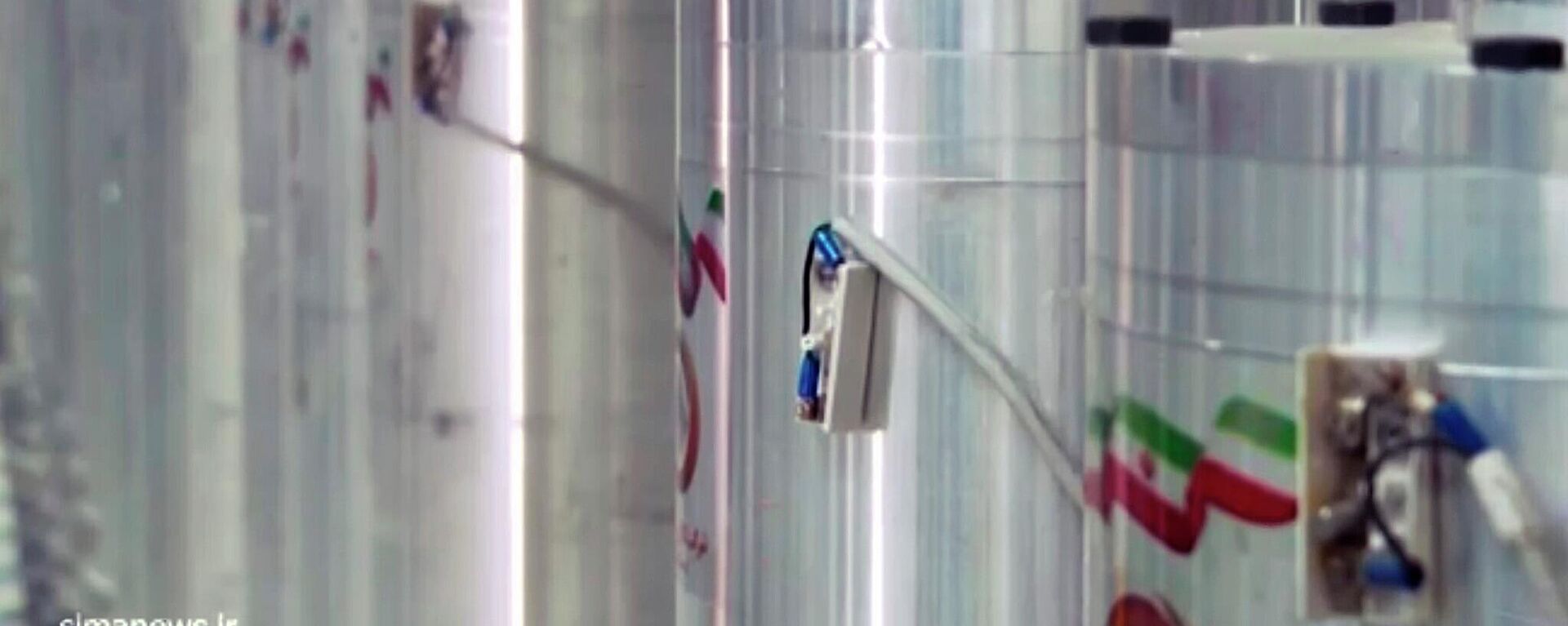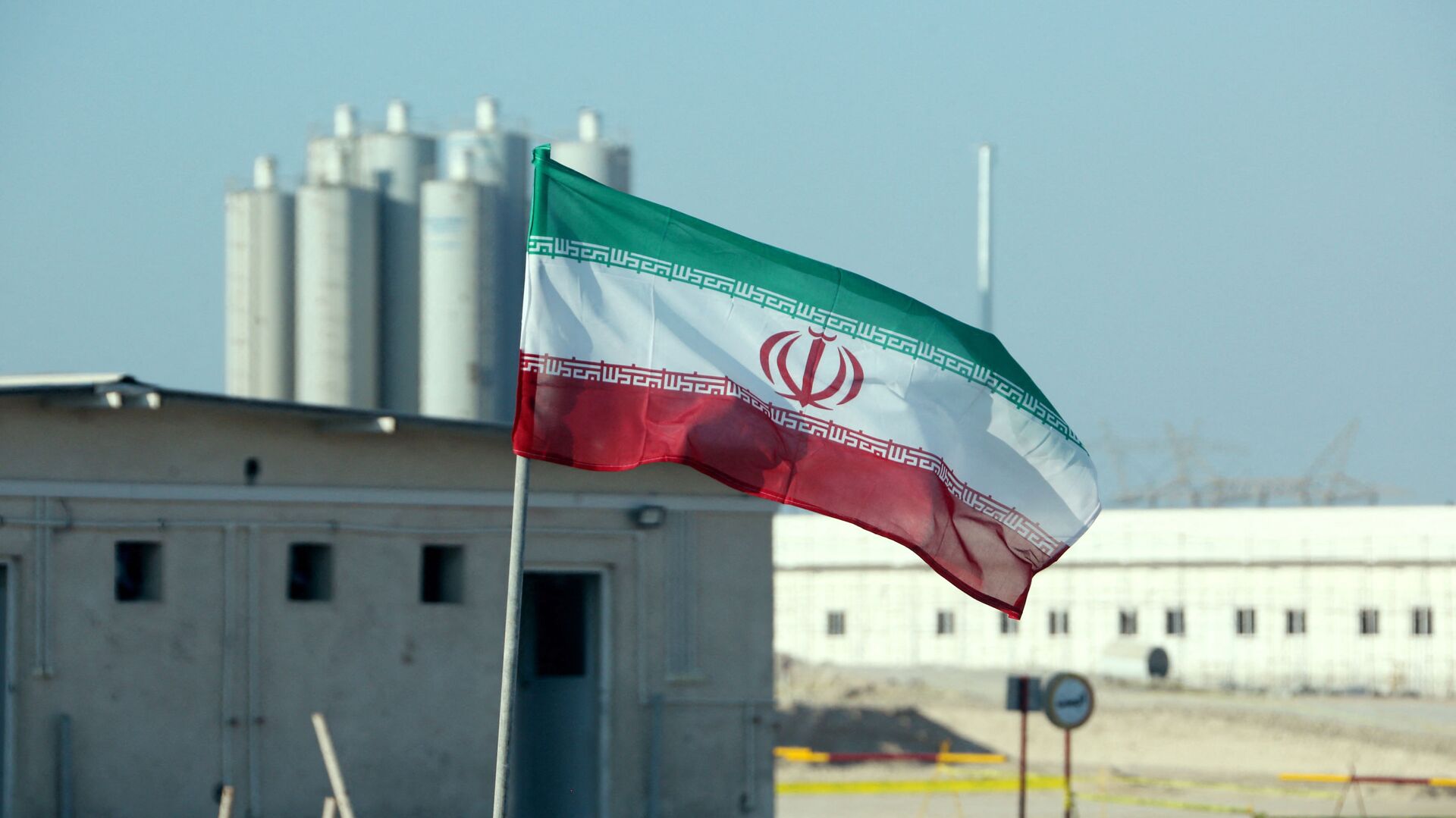https://sputnikglobe.com/20230220/irans-atomic-energy-organization-denies-reports-of-enriching-uranium-to-84-purity-1107616125.html
Iran's Atomic Energy Organization Denies Reports of Enriching Uranium to 84% Purity
Iran's Atomic Energy Organization Denies Reports of Enriching Uranium to 84% Purity
Sputnik International
Reports in Western media claiming that Tehran has enriched uranium to 84% distort the reality as the country has never gone beyond the enrichment level of 60%, Behrouz Kamalvandi, the spokesman of the the Atomic Energy Organization of Iran, said on Monday.
2023-02-20T10:59+0000
2023-02-20T10:59+0000
2023-07-31T16:59+0000
world
middle east
iran
joint comprehensive plan of action (jcpoa)
iaea
iran nuclear deal
https://cdn1.img.sputnikglobe.com/img/07e5/04/12/1082662088_0:164:3059:1884_1920x0_80_0_0_b2aa4e2320f92bb362003c18f4e98fa1.jpg
The spokesman stated that there could be some individual particles exceeding the enrichment level of 60%, which is a normal issue during the process. On Sunday, US media reported, citing senior diplomatic sources, that international atomic monitors in Iran found uranium enriched to 84% of purity, which is the highest level detected by inspectors in the country so far and just 6% below what is needed for the production of nuclear weapons. In late January, IAEA Director General Rafael Grossi said that Iran had failed to provide the IAEA with explanations on many aspects, as well as violated agreements under the Joint Comprehensive Plan of Action (JCPOA) since the country now had enough enriched uranium to create "several nuclear weapons." The JCPOA, which was negotiated between Iran and the five permanent members of the United Nations Security Council as well as Germany and the European Union in 2015, limited the country's uranium-enrichment level to just 3.67%. In 2018, the US unilaterally withdrew from the JCPOA, saying that Iran had violated the deal by developing nuclear weapons in secret. In response, Iran suspended parts of its own obligations under the deal, demanding the US lift sanctions. In December 2021, talks on the revival of the JCPOA resumed. However, progress on the deal was frozen by September 2022 due to a series of protests in the Islamic Republic, which Tehran blames on the US and its regional allies.
https://sputnikglobe.com/20230116/iran-nuclear-deal-how-us-failed-historic-breakthrough--opened-door-to-seven-years-of-controversy-1106401574.html
iran
Sputnik International
feedback@sputniknews.com
+74956456601
MIA „Rossiya Segodnya“
2023
Sputnik International
feedback@sputniknews.com
+74956456601
MIA „Rossiya Segodnya“
News
en_EN
Sputnik International
feedback@sputniknews.com
+74956456601
MIA „Rossiya Segodnya“
Sputnik International
feedback@sputniknews.com
+74956456601
MIA „Rossiya Segodnya“
iran nuclear program, iran not creating nukes, iran peacefule nuclear program, joint comprehensive plan of action ruined by us
iran nuclear program, iran not creating nukes, iran peacefule nuclear program, joint comprehensive plan of action ruined by us
Iran's Atomic Energy Organization Denies Reports of Enriching Uranium to 84% Purity
10:59 GMT 20.02.2023 (Updated: 16:59 GMT 31.07.2023) MOSCOW (Sputnik) - Reports in Western media claiming that Tehran has enriched uranium to 84% distort the reality as the country has never gone beyond the enrichment level of 60%, Behrouz Kamalvandi, the spokesman of the the Atomic Energy Organization of Iran, said on Monday.
"What matters is the final product and the Islamic Republic of Iran has never embarked on [uranium] enrichment at a level above 60 percent," Kamalvandi said, adding that the report published by a US media outlet was aimed at "distorting the realities."
The spokesman stated that there could be some individual particles exceeding the
enrichment level of 60%, which is a normal issue during the process.
"The IAEA [International Atomic Energy Agency] is well aware that such issues happen during the [nuclear] work. In various cases in the past, different levels of enrichment have been observed and have been accounted for, and this latest issue will be definitely clarified as well," Kamalvandi said.
On Sunday, US media reported, citing senior diplomatic sources, that international atomic monitors in Iran found uranium enriched to 84% of purity, which is the highest level detected by inspectors in the country so far and just 6% below what is needed for the production of nuclear weapons.
In late January, IAEA Director General Rafael Grossi said that Iran had failed to provide the IAEA with explanations on many aspects, as well as violated agreements under the Joint Comprehensive Plan of Action (JCPOA) since the country now had enough enriched uranium to create "several nuclear weapons."

16 January 2023, 15:20 GMT
The JCPOA, which was negotiated between Iran and the five permanent members of the United Nations Security Council as well as Germany and the European Union in 2015, limited the country's uranium-enrichment level to just 3.67%. In 2018, the US unilaterally withdrew from the JCPOA, saying that Iran had violated the deal by developing nuclear weapons in secret. In response, Iran suspended parts of its own obligations under the deal, demanding the US lift sanctions.
In December 2021, talks on the
revival of the JCPOA resumed. However, progress on the deal was frozen by September 2022 due to a series of protests in the Islamic Republic, which Tehran blames on the US and its regional allies.



